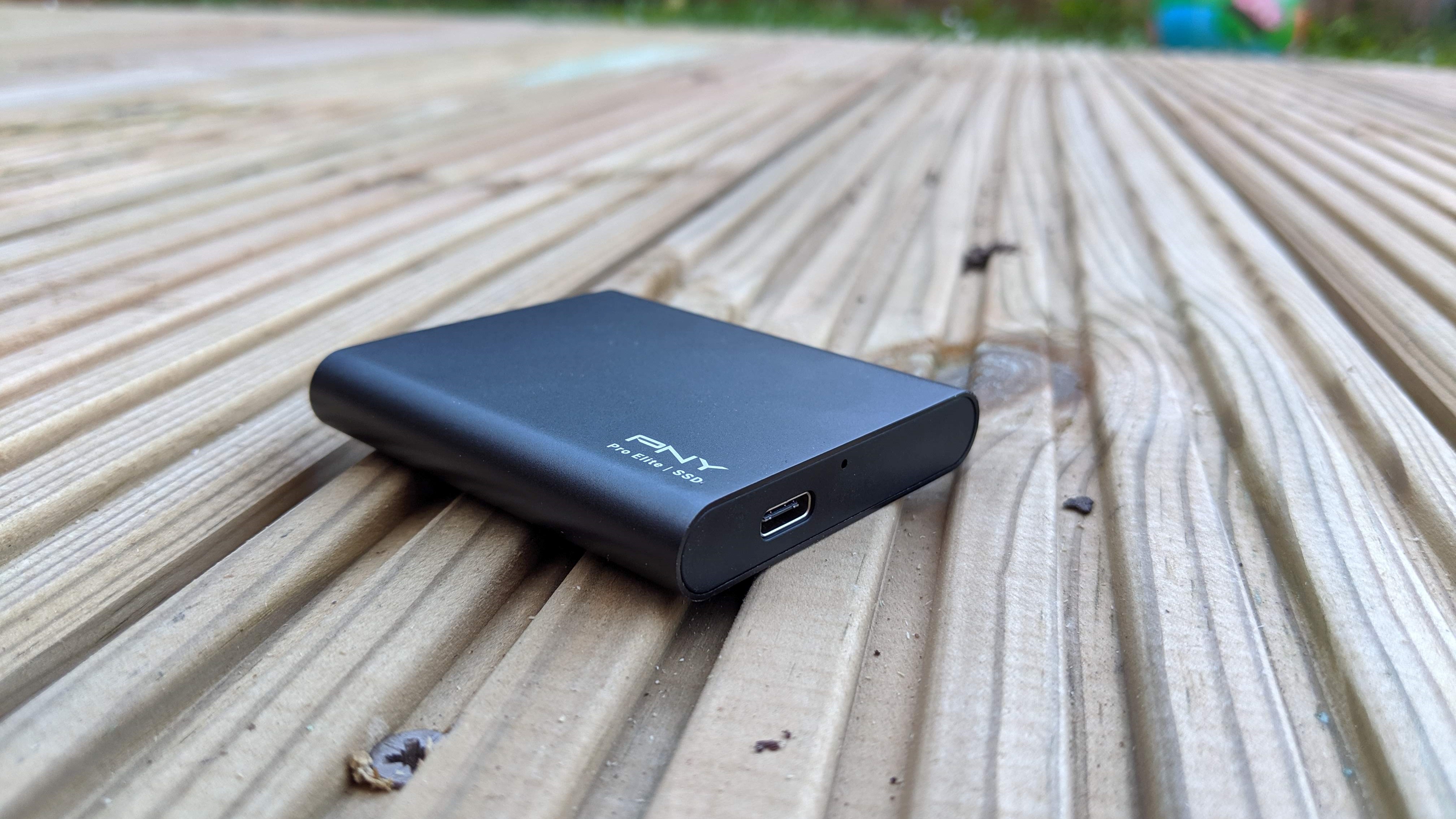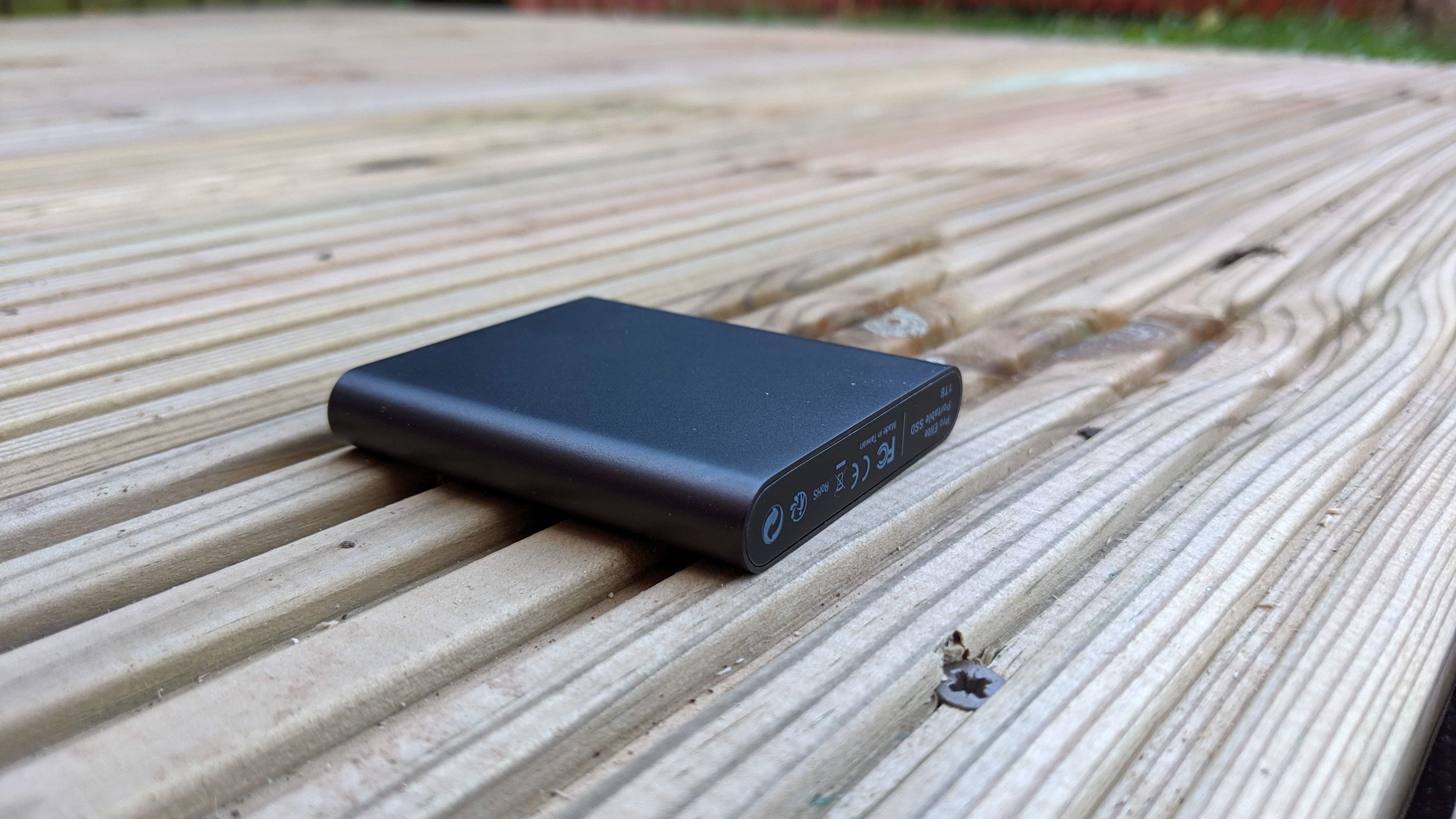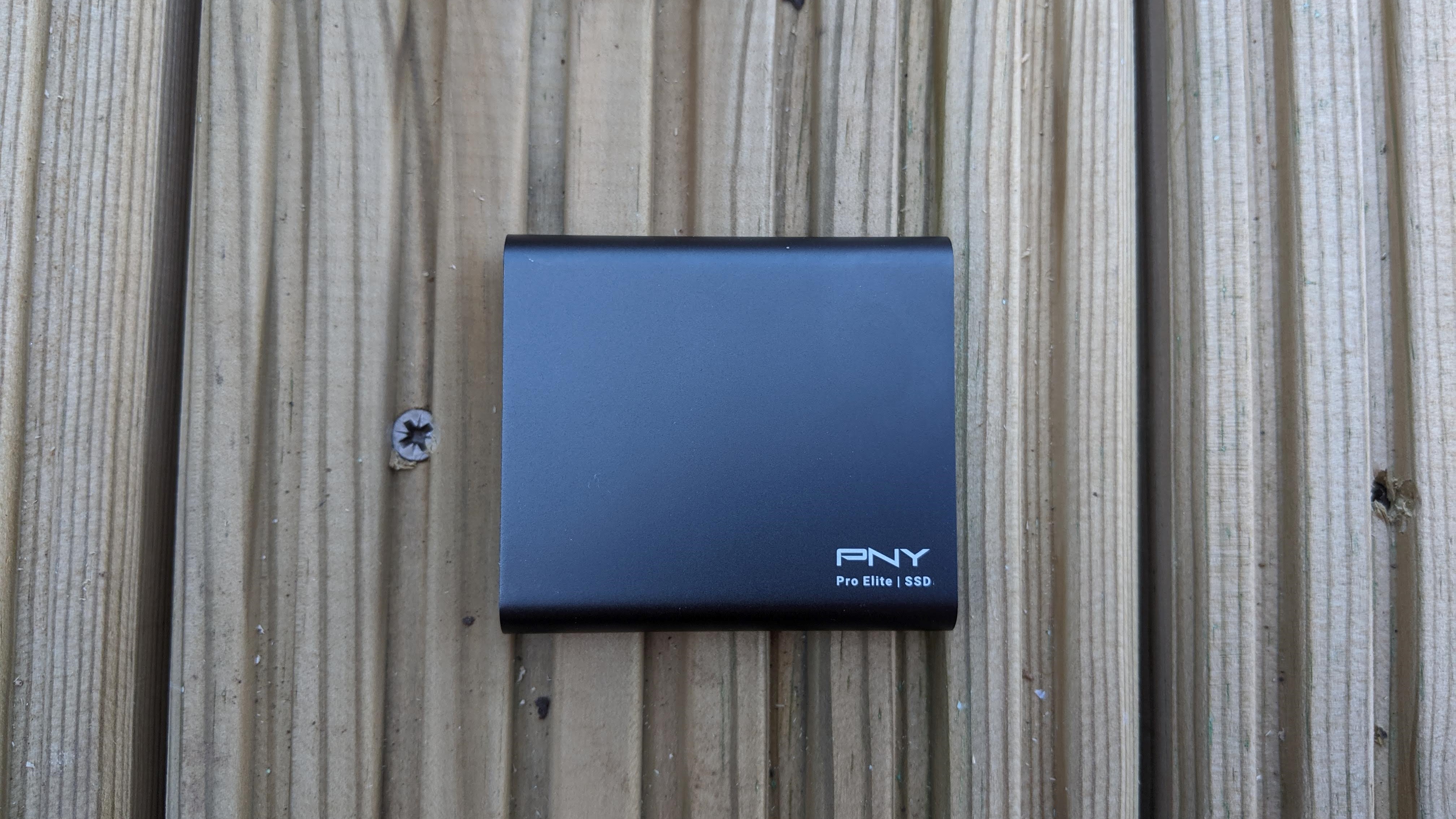TechRadar Verdict
The PNY Pro Elite 1TB External SSD is now the one to beat when it comes to ultra portable solid state drives. It is cheaper and smaller than the T5 with a similar upmarket finish and as fast as that one.
Pros
- +
Solidly built
- +
Great price
- +
Tiny
- +
Excellent performance
Cons
- -
No encryption
- -
Not rugged
Why you can trust TechRadar
If there’s one niche market where solid state drives absolutely trounce their spinning counterparts, it is that of portable external storage where a combination of nimbleness, ruggedness, low power consumption and falling prices have made them unavoidable and in many cases, a no-brainer.
Enter PNY, a company with a diverse portfolio that goes from car chargers and power banks to AI super computers like the Nvidia DGX-2 that cost more than $400,000. The Pro Elite aims to cement the company’s storage credential by offering an interface (USB Type C 3.1 Gen 2) that is built to offer the sort of transfer rates that SSD can achieve and hard disk drives simply can’t.
And at less than $150 for the 1TB model ($65 for the 250GB and $95 for the 500GB), it does so without breaking the bank.
- Also check out the best portable SSD of 2019

Design
This drive is tiny, a smidge smaller than the Samsung T5, which is the reference design for ultraportable solid state drives and was launched in 2017. It has exactly the same width and thickness (57 and 10.5mm) but is shorter (67 vs 74mm) and lighter (51g vs 43g). You won’t have any problems shoving it into your jeans pocket.
Note that the Elite Portable SSD is even smaller at 60 x 35.6 x 8.9 but with a slower USB 3.1 Gen 1 interface.
Like its archnemesis, the Pro Elite SSD is made entirely of metal with a brushed dark finish (a grey metal one is also available), with a small PNY logo, a status LED and a Type-C connector, a 3.1 Gen 2 You get two cables in the box, each about 225mm. One is a Type-C (3.1) to Type-C (3.1) and the other Type-C (3.1) to Type-A (3.1).
Also in the box is a serial number for a data protection software from Acronis, True Image. It is an integrated software suite that ensures the security of all of the information on your PC. Great as PNY has a rather sobering disclaimer on the product box saying that the company doesn’t “warrant that use of operation of this product will be error free, nor does it warrant that any data stored on the product will remain accessible and uncorrupted”. Not the type of message you want to see when choosing a data product.

In use
Here’s how the PNY Pro Elite 1TB External SSD performed in our benchmark tests:
CrystalDiskMark: 484MBps (read); 688MBps (write)
Atto: 881MBps (read, 256mb); 832MBps (write, 256mb)
AS SSD: 720MBps (seq read); 637MBps (seq write)
PNY claims that the drive would be able to reach up to 900MBps and 890MBps in read and write speeds respectively when used with Gen 2 connectors, which, in theory, can reach up to 10Gbps (or 1.25GBps), that’s a theoretical unachievable limit.
The Pro Elite was formatted ExFat when we received it with a formatted capacity of 931GB and no bundled software (note that it is not compatible with Linux). As expected, it does get warm under use as the billions of transistors trapped inside the aluminum chassis generate heat that then needs to be dissipated via the casing.
We don’t know much about the internals of the drive other that the fact that it is UASP-enabled, with SMART, NCQ and TRIM. Likely that it uses 3D TLC NAND (like the XLR8 range from PNY) from one of the direct competitors of the brand.
As for its performance, it was as good as it gets, provided that you have a compatible Type-C USB Gen 2 device. We used the Dell XPS 15 2-in-1 convertible laptop from 2018; it has two Thunderbolt 3 ports and two Type-C Gen 1 ports. Using the former ports, we achieved some remarkable numbers, 832MBps/881MBps write/read with ATTO and managed to transfer 100GB of data in 267 seconds, an average, real life transfer rate of about 374MBps. Not shabby at all and better than the Sandisk Extreme, for example. In comparison, the OWC Aura P12, which is a Thunderbolt 3 drive, achieved 181 seconds, it is also far more expensive.
Competition
The 1TB version of the Samsung T5 costs just under $165 at Amazon with the 2TB model retailing for $269.99, making it a far better deal if your budget stretch to there. Like the PNY model, you get a 3-year warranty with the added benefit of AES 256 bit hardware encryption and a choice of colours.
The Sandisk 1TB Extreme portable external SSD doesn’t do Gen 2 USB but it is ruggedised and water/dust resistant with a lovely cable adaptor and a 3-year manufacturer's warranty. It is far bigger than the T5 or the Pro Elite but some may prefer its more pragmatic design; it has an orange loop for example which makes it more visible.
A special mention for the Adata SD600Q which is currently on sale for less than $100 at Amazon. It is ruggedised but not waterproof and uses QLC technology which makes it slower than others. It doesn’t have a Type-C connector as well. But you won’t be able to beat it for value for money.
Note that there’s another Pro Elite product in the PNY family, a USB 3.0 Flash drive, that is slower but also far, far smaller.
Final verdict
The Samsung T5 has finally met its match. The PNY Pro Elite 1TB External SSD is more than capable of beating Samsung’s product thanks to its Gen 2 interface and a slightly lower price. It is also smaller and while it doesn’t have encryption or software management capabilities, it does have a free version of Acronis True Image (albeit not the full version). Oh and did we mention that it is speedy as well?
- Looking for something more durable? These are the best rugged hard drives of 2019

Désiré has been musing and writing about technology during a career spanning four decades. He dabbled in website builders and web hosting when DHTML and frames were in vogue and started narrating about the impact of technology on society just before the start of the Y2K hysteria at the turn of the last millennium.
